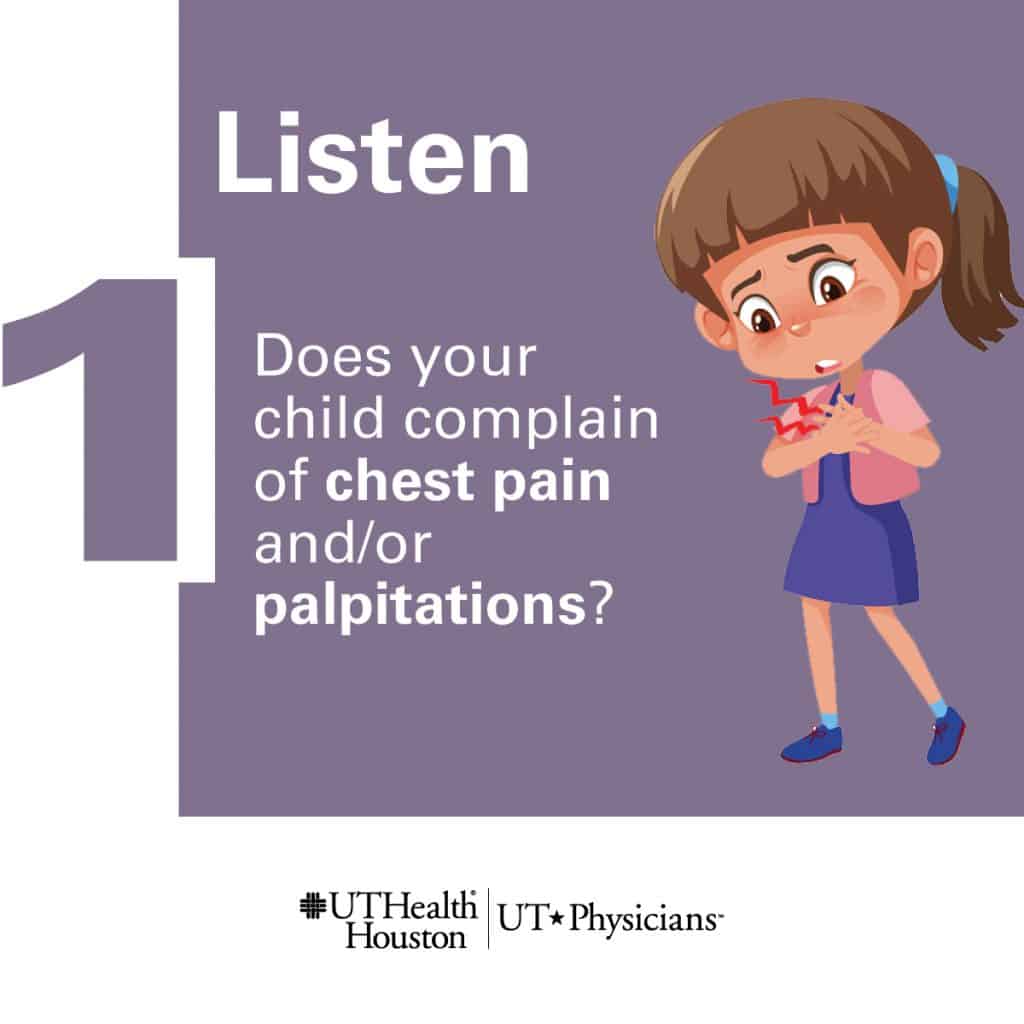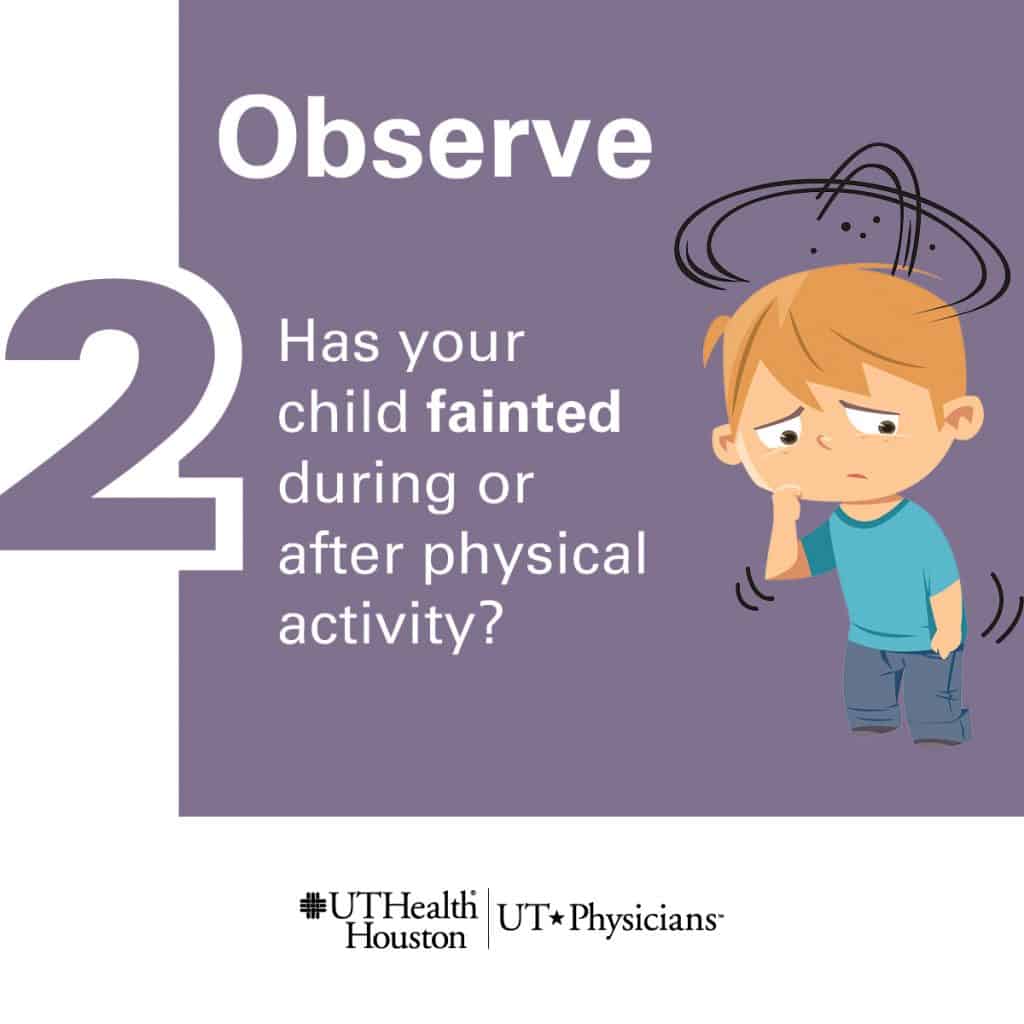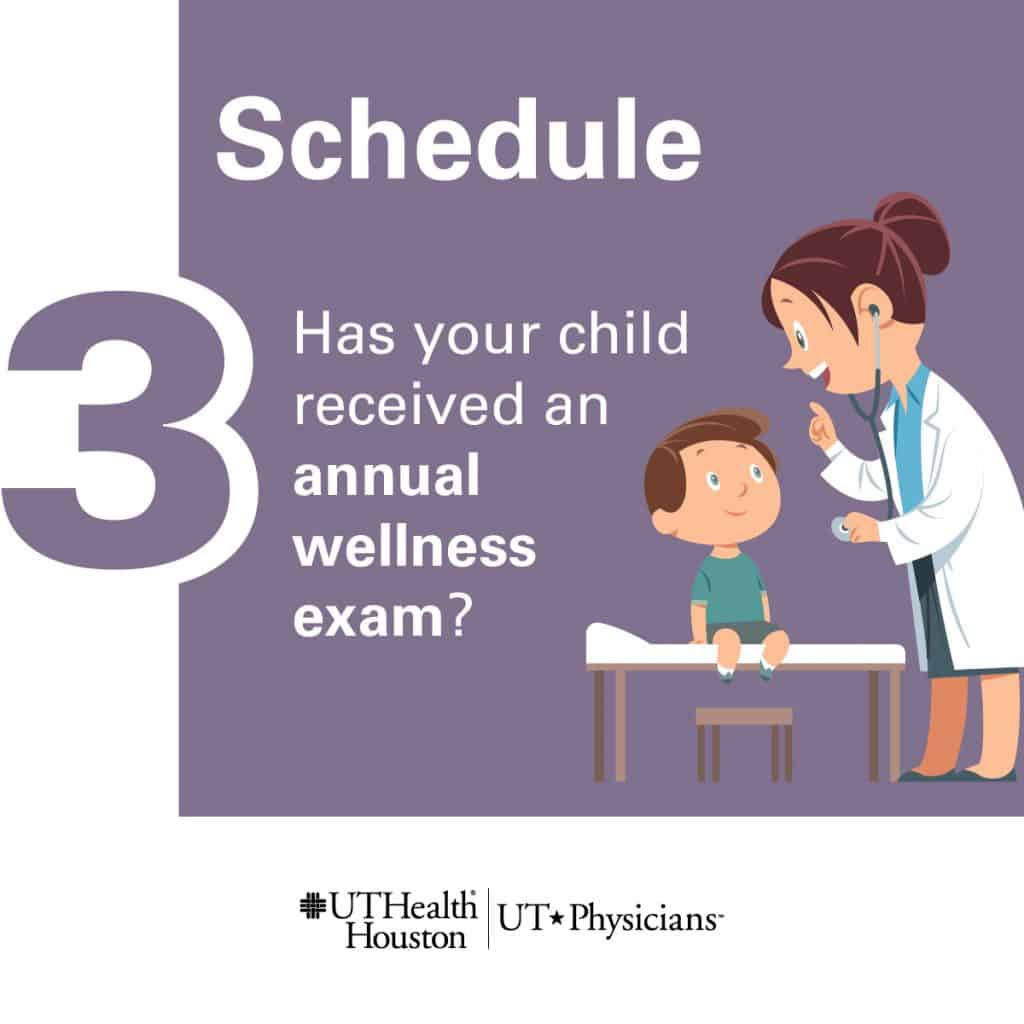Though many congenital heart defects (CHDs) are found in infancy, it is possible for a seemingly healthy child to develop a heart problem, according to a children’s heart specialist.
“An asymptomatic child can have an underlying heart condition that manifests in late childhood or early adulthood,” said Unnati H. Doshi, MD, pediatric cardiologist for UT Physicians Pediatric Center – Webster. “This is particularly the case if he or she has a family history of certain heart conditions, pacemakers, or abnormal exam findings. This can also occur from a health condition the child develops, such as obesity.”
Doshi named the three main symptoms parents need to know: chest pain, palpitations, and fainting. Learn more about these indicators as the doctor teaches you three basic ways to recognize a possible heart condition in your child.
Listen
If your son or daughter complains of chest pain, palpitations (racing, pounding, or fluttering pulsations of the heart), and/or dizziness, arrange a visit to the doctor. These symptoms may be harmless, or they may signal another health issue. In either case, listen and then act.
“Most chest pain, although worrisome to parents, is secondary to muscle pain and usually doesn’t pose an immediate danger to your child,” Doshi said. “However, it’s important to check with their primary care doctor to determine if your child needs to be further evaluated by a pediatric cardiologist.”
Observe
Your toddler — or teen! — may not tell you about mild chest pain or palpitations, but notice the clues. Observe your child for fainting, shortness of breath, and/or fatigue, especially after physical activity. Book a doctor’s appointment if you notice any of these.
“Fainting that happens without warning, during physical activity, or is preceded by palpitations or chest pain needs to be evaluated by a physician and may require further cardiac testing,” Doshi said. “Shortness of breath or unusual fatigue with exercise may also be a sign of an underlying heart condition. Talk to your doctor to determine if your child needs to see a heart specialist.”
Schedule
Just as you should have a wellness exam each year, so should your child. Though they are less likely to suffer from heart disease or other chronic illnesses, children also need to see a physician for preventive care. Schedule an annual visit with a pediatrician or family medicine physician.
“Children should see the doctor regularly, but this often stops after they’ve received their required school vaccinations,” Doshi said. “A physician can detect anything unusual during an annual exam, such as heart murmurs [an abnormal heart sound described as “whooshing” or “swishing”], or catch other concerning symptoms. With regular checkups, a doctor may uncover a heart problem before a parent ever suspects.”
Also, be sure to provide the primary care physician with as much health history as possible.
“History doesn’t just include the patient. It also includes the entire family. A family history can be very telling,” Doshi said. “A complete health history is just as important as any tests a doctor may run, so take your son or daughter to the doctor who knows them well and has their full history.”
Remember the three ways



What happens next?
If your child does go on to see a pediatric cardiologist, the doctor may order an electrocardiogram, a recording of the heart’s electrical activity; and an echocardiogram, an ultrasound of the heart. Heart monitors and a cardiopulmonary stress test may also be needed. The doctor will certainly request all medical records for a thorough evaluation.
If diagnosed with a heart condition, the pediatric cardiologist will counsel you and your child on the preventative care, treatment, or corrective surgery needed to help your child live a longer and stronger life.
“No one wants their child to have a heart condition, but it doesn’t mean they can’t have a happy, quality life with guidance from your medical team,” Doshi said.
Remember, if your child tells you about chest pain or palpitations, or if you see fainting or other alarming flags, make an appointment with a physician. Also, ensure your child receives an annual health exam each year.
“It’s very helpful to know the three symptoms, but it essentially comes down to listening, observing, and scheduling. Following this advice can help you recognize a manifesting heart condition in your child,” Doshi said. “In fact, following this advice will help you catch almost any health condition your child could develop.”
If your child is experiencing any symptoms of a possible heart condition, call 713-486-6755 to make an appointment.



